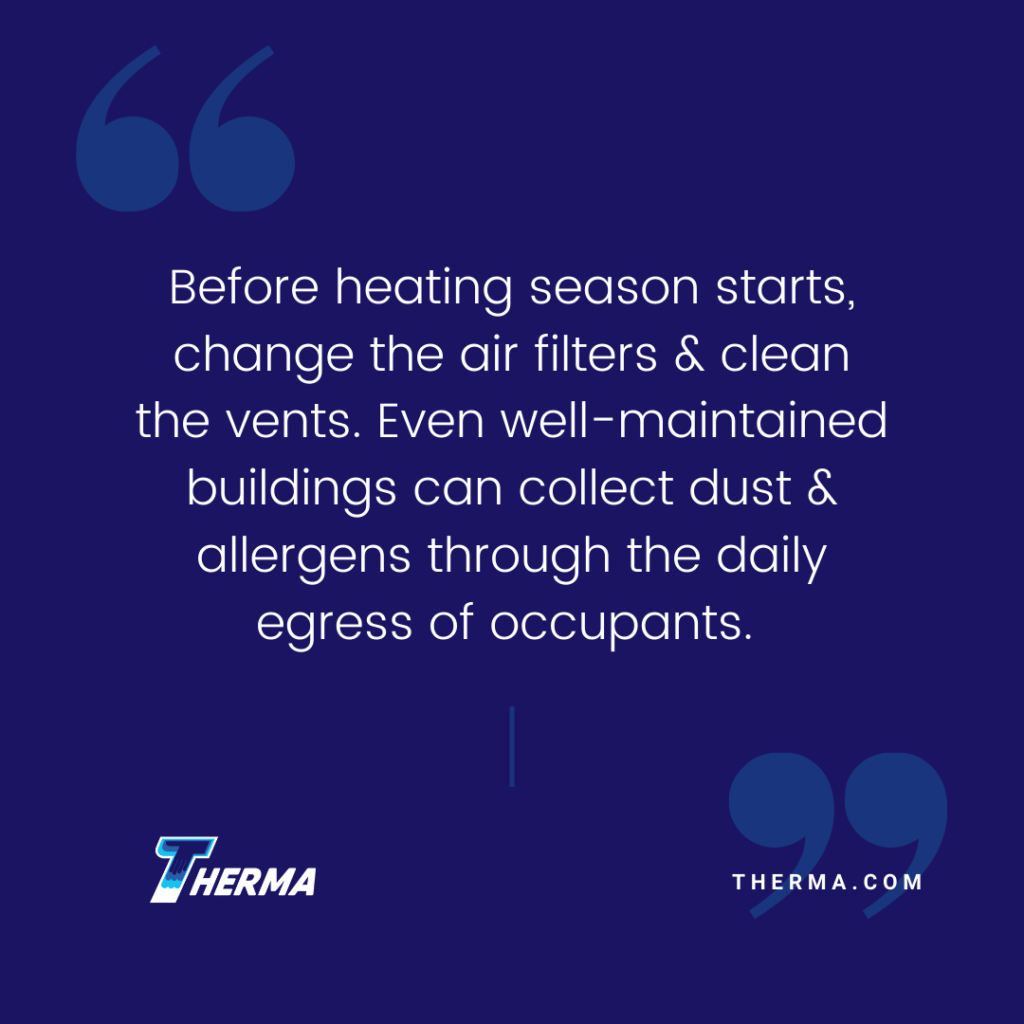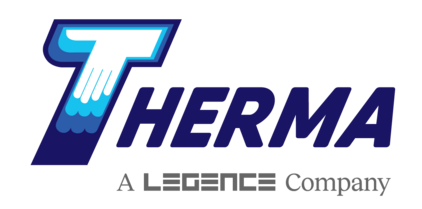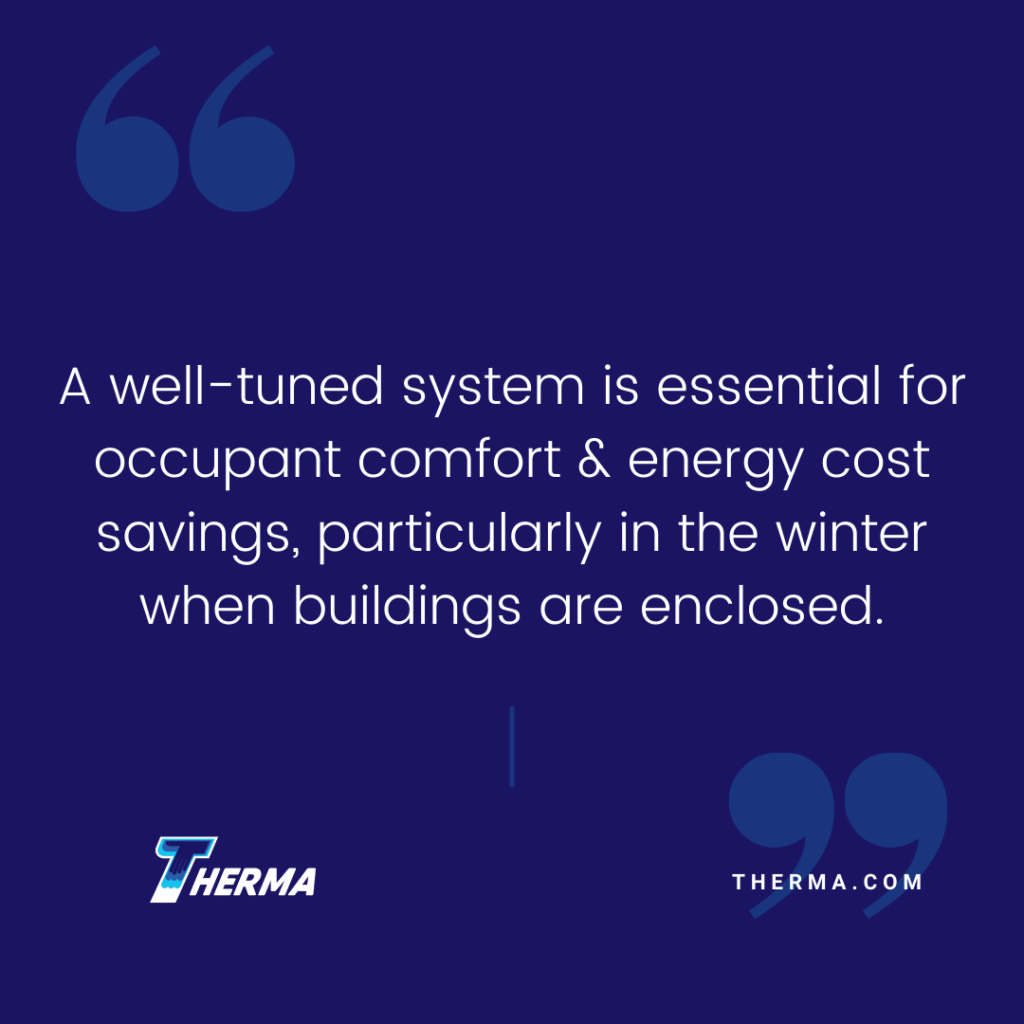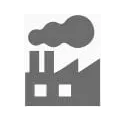by Ali Kriscenski
An unexpected heating problem can cause exponential headaches for owners, facility managers, and tenants. A proactive approach to winterizing your HVAC system can help diagnose equipment and performance issues before heating is central to protecting life and property in cold winter months. Here’s a look at seasonal HVAC requirements and why checking them early is a top priority.
1. System Cleaning for Air Quality
If your heating system has been dormant for a few months, don’t fire it up dusty. Before heating season starts, change the air filters and clean the vents. Even well-maintained buildings can collect dust and allergens through the daily egress of occupants. These particles can accumulate at floor and wall vents while heating ducts are inactive. Cleaning these areas before running the heating system will help prevent blasting settled dust and allergens into the air.
A thorough system cleaning will ensure the efficiency of airflow and equipment. Dirty filters or ducts can create blockages that affect how a system operates. With properly adjusted airflow through filters, ducts and vents, the system will run at higher efficiency. A well-tuned system is essential for occupant comfort and energy cost savings, particularly in the winter when buildings are enclosed.
2. Running Systems Ahead of the Seasons
If you’re in a seasonal area, it’s easy to forget that winter can be harsh and unforgiving. Below zero temps, ice dams and snowdrifts are all distant memories by late autumn. However, the best time to check on your building’s HVAC system is before winter drops the temperatures and heating problems at your door.
Find a date before winter when you and your facility manager can run the heating system as required during colder months. This step allows you to check equipment operation and settings and identify if any adjustments, repairs or replacements are needed. As the system is running, you can check for any odors, noises, or leaks that may not have been apparent when the system was inactive. Be sure to set aside time to do a test run or two well before the heating season. If you do need service, you’ll find your HVAC specialist will be in high demand as temperatures drop.
3. HVAC Commissioning
Many construction standards advise owners to perform HVAC commissioning for indoor air quality, energy efficiency and general building or project requirements. Commissioning is a way to verify that the equipment meets the owner’s requirements, such as energy efficiency performance. It can be done at the closeout phase of new construction, when new equipment is installed in an existing building or to verify and improve existing systems.
The commissioning process includes a thorough check of installed HVAC equipment against any construction specifications and manufacturer’s requirements. It also requires observing equipment in operation during startup, shut down and any other operating settings. Any deviations from the owner’s requirements, such as settings, conditions or controls, can be adjusted. Commissioning can also address a building’s air balance, ensuring that performance and air quality meet the desired goals. Overall, commissioning verifies that a building’s HVAC systems are installed, calibrated and performing to meet the owner’s requirements.

4. Programmable System Controls
In today’s HVAC market, system controls offer high-tech efficiency that can even be managed remotely. A pre-season check may be the ideal time to upgrade thermostats and other devices that help you manage conditions throughout your building. This upgrade will help you automate, monitor, and control HVAC settings for comfort and efficiency. Another benefit of a building automation system is that you’ll be able to set alerts for low-temp conditions that could indicate a system failure.
5. Keep Regular Maintenance Appointments
While you may be able to do a significant amount of HVAC maintenance in-house, there is significant long-term value to keeping an annual or biannual maintenance appointment with your HVAC professional. With a regular schedule, you’ll keep to a maintenance routine that will align with the seasonal HVAC requirements. An HVAC professional can check equipment for proper settings, efficiency, and preventative maintenance to save money in the long run.
Winterizing Your HVAC System
Preparing for winter is an integral part of maintaining a healthy HVAC system. Professionals at Therma can assist owners and building managers with seasonal maintenance schedules to ensure your HVAC system is ready to endure the colder weather. Find an HVAC professional today.
Ali Kriscenski was trained in high-performance building design at Boston Architectural College. She has worked with leading architecture and construction firms in NYC and New England and served on the executive team at the Forest Stewardship Council International. She was the managing editor at Inhabitat and has worked pro bono for the Green Building Institute, ISEAL Alliance and Habitat for Humanity.
Sources
U.S. Environmental Protection Agency (EPA) – Air Cleaners and Air Filters in the Home
Whole Building Design Guide – High-Performance HVAC








